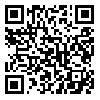Volume 25, Issue 3 (10-2019)
Back to this Issue |
Back to browse issues page
Download citation:
BibTeX | RIS | EndNote | Medlars | ProCite | Reference Manager | RefWorks
Send citation to:



BibTeX | RIS | EndNote | Medlars | ProCite | Reference Manager | RefWorks
Send citation to:
Nikbakht Nasrabadi A, Joolaee S, Navvab E, Esmaeilie M, Shali M. A concept analysis of white lie from nurses’ perspectives: A hybrid model
. Journal of Hayat 2019; 25 (3) :309-324
URL: http://hayat.tums.ac.ir/article-1-3107-en.html
URL: http://hayat.tums.ac.ir/article-1-3107-en.html
Alireza Nikbakht Nasrabadi1 

 , Soodabeh Joolaee2
, Soodabeh Joolaee2 

 , Elham Navvab3
, Elham Navvab3 

 , Maryam Esmaeilie4
, Maryam Esmaeilie4 

 , Mahboobeh Shali *
, Mahboobeh Shali * 

 5
5


 , Soodabeh Joolaee2
, Soodabeh Joolaee2 

 , Elham Navvab3
, Elham Navvab3 

 , Maryam Esmaeilie4
, Maryam Esmaeilie4 

 , Mahboobeh Shali *
, Mahboobeh Shali * 

 5
5
1- Dept. of Medical Surgical Nursing, School of Nursing and Midwifery, Tehran University of Medical Sciences, Tehran, Iran
2- Center of Health Evaluation & Outcome Sciences (CHEOS), Canada, Vancouver, BC; Nursing Care Research Center, Iran University of Medical Sciences, Tehran, Iran
3- Dept. of Critical Care Nursing and Management, School of Nursing and Midwifery, Tehran University of Medical Sciences, Tehran, Iran
4- Dept. of Critical Care Nursing and Management, School of Nursing and Midwifery, Tehran University of Medical Sciences, Tehran, Iran; Nursing and Midwifery Care Research Center, School of Nursing and Midwifery, Tehran University of Medical Sciences, Tehran, Iran
5- Dept. of Critical Care Nursing and Management, School of Nursing and Midwifery, Tehran University of Medical Sciences, Tehran, Iran ,M.shali@ZUMS.ac.ir
2- Center of Health Evaluation & Outcome Sciences (CHEOS), Canada, Vancouver, BC; Nursing Care Research Center, Iran University of Medical Sciences, Tehran, Iran
3- Dept. of Critical Care Nursing and Management, School of Nursing and Midwifery, Tehran University of Medical Sciences, Tehran, Iran
4- Dept. of Critical Care Nursing and Management, School of Nursing and Midwifery, Tehran University of Medical Sciences, Tehran, Iran; Nursing and Midwifery Care Research Center, School of Nursing and Midwifery, Tehran University of Medical Sciences, Tehran, Iran
5- Dept. of Critical Care Nursing and Management, School of Nursing and Midwifery, Tehran University of Medical Sciences, Tehran, Iran ,
Abstract: (3599 Views)
Background & Aim: White lie is one of the inevitable challenges that creates an ethical dilemma during the patient care process. White lie remains an abstract concept in caring process. The aim of this study was to analyze the concept of white lie in the caring process using a hybrid model.
Methods & Materials: A hybrid model of concept analysis including three phases was used in this study. In the theoretical phase, different databases including PubMed, CINAHL, Scopus, Science Direct, Google scholar, SID and Magiran were searched for finding relevant articles published in 1980-2018. The keywords were truth, white lie, care and deception (in Persian and English). In the fieldwork phase, semi-structured in depth interviews were conducted with nurses. In next step, by combining the two previous stages, the final analysis was performed.
Results: In the theoretical phase, the attributes of the concept were determined, including “harmlessness”, “without personal motivation” and “use in compulsion situations”. In the fieldwork phase, three main categories such as “the sweetness of the bitter truth”, “harmless sentences to prevent harm” and “temporary relief to balance the situation” were identified from the data analysis. By merging the concepts extracted from the theoretical and fieldwork phases, “white lie in the patient care process” was defined as “an ethical decision without personal motivation, which is chosen in unstable situations to prevent predictable harms to the patient in facing the bitter truth”.
Conclusion: Although a definition of white lie was developed based on the above three phases, the further development of this concept requires a deeper look at the Iranian-Islamic culture. Therefore, further research is recommended in other medical centers in the country.
Methods & Materials: A hybrid model of concept analysis including three phases was used in this study. In the theoretical phase, different databases including PubMed, CINAHL, Scopus, Science Direct, Google scholar, SID and Magiran were searched for finding relevant articles published in 1980-2018. The keywords were truth, white lie, care and deception (in Persian and English). In the fieldwork phase, semi-structured in depth interviews were conducted with nurses. In next step, by combining the two previous stages, the final analysis was performed.
Results: In the theoretical phase, the attributes of the concept were determined, including “harmlessness”, “without personal motivation” and “use in compulsion situations”. In the fieldwork phase, three main categories such as “the sweetness of the bitter truth”, “harmless sentences to prevent harm” and “temporary relief to balance the situation” were identified from the data analysis. By merging the concepts extracted from the theoretical and fieldwork phases, “white lie in the patient care process” was defined as “an ethical decision without personal motivation, which is chosen in unstable situations to prevent predictable harms to the patient in facing the bitter truth”.
Conclusion: Although a definition of white lie was developed based on the above three phases, the further development of this concept requires a deeper look at the Iranian-Islamic culture. Therefore, further research is recommended in other medical centers in the country.
Send email to the article author
| Rights and permissions | |
 |
This work is licensed under a Creative Commons Attribution-NonCommercial 4.0 International License. |



